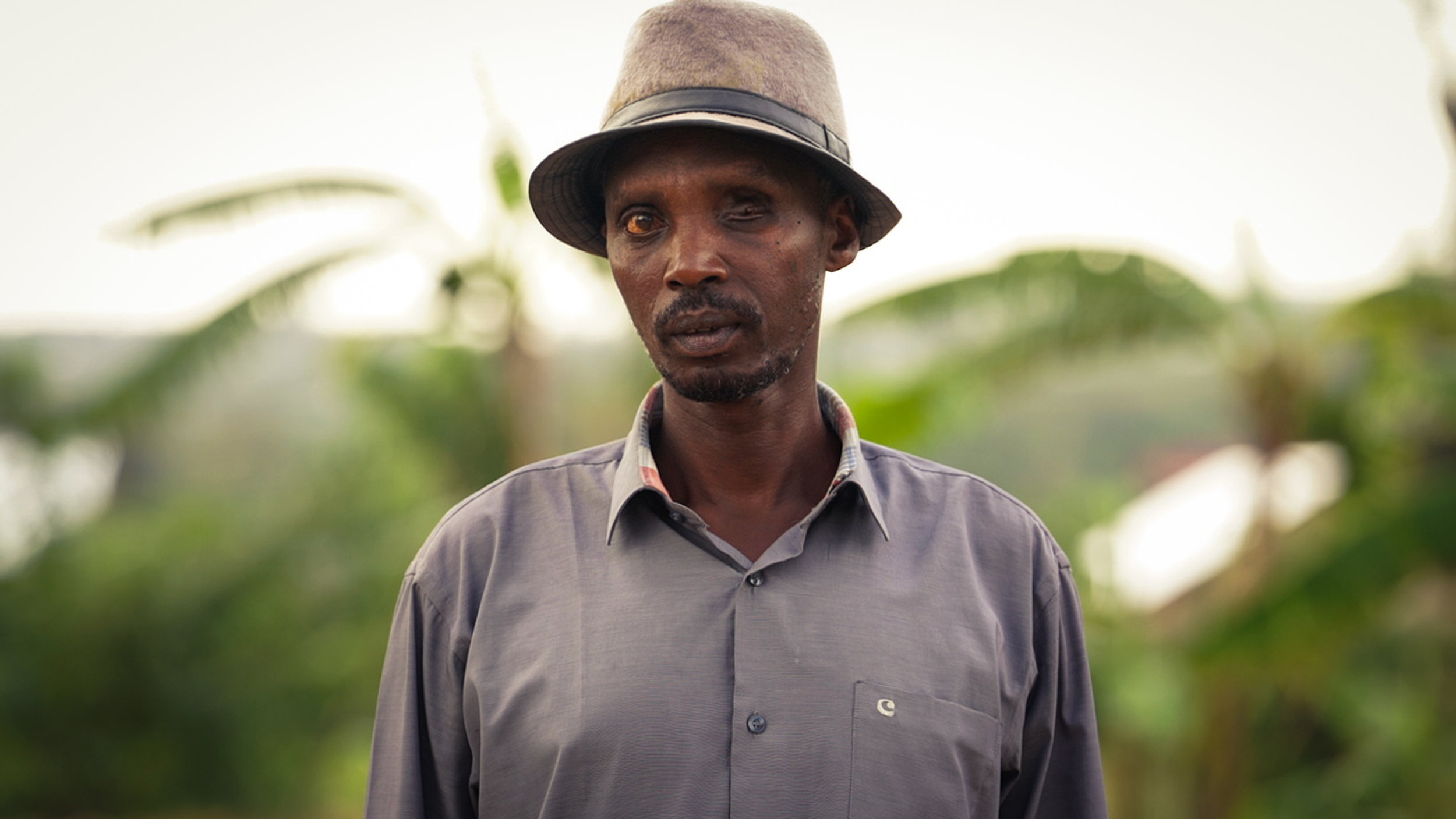Not too long ago, the Zam Zam team took a trip to Rwanda - a country where your support has helped us build 6 water projects and a school. The purpose was twofold: first, to grow as individuals by meeting to the people that we serve and secondly, to bring back content that forges a connection between the people that we serve and our donors. As a member of the Creative team, it was my undertaking to bridge this gap. I was tasked with responsibility of capturing not just our projects but stories from the people. Stories from a different country that the rest of the world needed to hear.
On our first day there we visited an old church that is now a historical genocide site. The story is that a large crowd of Tutsis sought refuge inside the church, all to be crossed by their Reverend, who informed the Hutu authorities to come and ransack the church. I walked in and immediately felt the presence of not just death but sheer savagery. The clothing of the victims were intentionally left there as a reminder. Not to mention the countless caskets and skulls that bore visible machete ruptures. As I walked out, emotionally taxed and regretful of what I allowed myself to see, I could hear the soothing sounds of children playing. There was a kindergarten school adjacent to the church and the kids all raced to high-five Yusuf. It was the starkest of contrasts. A polarizing interplay of life and death. Joy and pain. Past and future. Proof that, no matter what occurs, life goes on and runs its course. The cycle seizes for none. Ultimately, no tragedy can ever outrace time.
In the picture above you’ll see a former perpetrator from the genocide (left) next to a victim (right). Believe it or not, these two individuals are now friends. They even take turns watching each other's children. After the Genocide, Rwanda launched an unprecedented reconciliation initiative where the perpetrators were to make amends and gradually be reestablished into the fold of society. The level of forgiveness displayed by the Rwandan victims is beyond comprehension. It’s almost hard to believe that the human heart is capable of such unparalleled mercy. We are too familiar with the evil capacities of the heart. Turn on the news and you’ll see a story that will make you lose hope in all of mankind. Rwandans have exposed us to the other end of the heart spectrum. At that moment I thought about all the grudges I have held with people. They had never felt more trivial. The genocide has been reconciled, however, Rwanda does not bury its past. They own it and will never forget even if they forgave. Even though the perpetrator has made amends and found atonement, the emotional scars of having spilt blood were still visible in his pensive facial expression and tight shoulders. Moving onto the victim - though she has pardoned, the emotional baggage of having lost both her parents in the genocide is still visible in her captivating eyes.
I’ve always wondered how a society could mobilize thousands of people to kill mercilessly. After this trip, I found it even more puzzling as to how a society could mobilize thousands of people to pardon those very same killers. Between these two questions, we can find an answer for both. Human beings are born pure. Hate however, is a construct. Hate is the ingredient injected into peoples mind that cause them to lose all decency and humanity. If it can be taught, then it can be untaught. If it can be injected, then it can be extracted and replaced with love, which was the primary ingredient that the Rwandan government injected into the victim’s hearts when they encouraged them to pardon their perpetrators.
As a first generation Afghan American, I come from land that has also seen far too much grief. With nearly 40 years of nonstop conflict with no foreseeable end, it’s hard to for me to imagine the light at the end of the tunnel. Rwanda serves as an exemplary model for how to move forward with conflict. Their reconciliation initiative paved way for them to heal from such a devastating catastrophe. Had Afghanistan, or any other war-torn country, taken a similar approach, then perhaps the situation would have been different?
Rwandans have turned the most insurmountable of tragedy into triumph. They’re characterized by their warmth and cheer. Every last one of them has a story, from the politician, to the village chief, to the basket weaver that you passed by on the street. Their stories are engraved on their faces. When you look in their eyes, you see their past. All of the bloodshed. The grief. The heartbreaking tribulation. Conversely, when you look at their smiles, you see their future. The optimism. The hope. Their unwavering value for life.
When we first landed, our tour guide said, “God travels the world all day, but He always comes home to Rwanda.” Initially this quote did not resonate with me. However, as I departed back home, I looked out the airplane window into the green and hilly landscape, one final time, and it all made sense. This is His home. This is God’s home.



![life[1].jpg](https://images.squarespace-cdn.com/content/v1/59497ec4bf629ab7571b14c4/1512425831097-XJB7Q7PHSKZ6WEVVUID2/life%5B1%5D.jpg)



![C0019T01[1].jpg](https://images.squarespace-cdn.com/content/v1/59497ec4bf629ab7571b14c4/1512425980180-HLGSVUTBYU3O3P5ZD2UF/C0019T01%5B1%5D.jpg)
![DSC00569[1].jpg](https://images.squarespace-cdn.com/content/v1/59497ec4bf629ab7571b14c4/1512426011154-OL8KQXNRO2NK1VJ5MXXH/DSC00569%5B1%5D.jpg)

![DSC00431[1].jpg](https://images.squarespace-cdn.com/content/v1/59497ec4bf629ab7571b14c4/1512426234203-DJZKG9MVLKB0KDWDEA9O/DSC00431%5B1%5D.jpg)